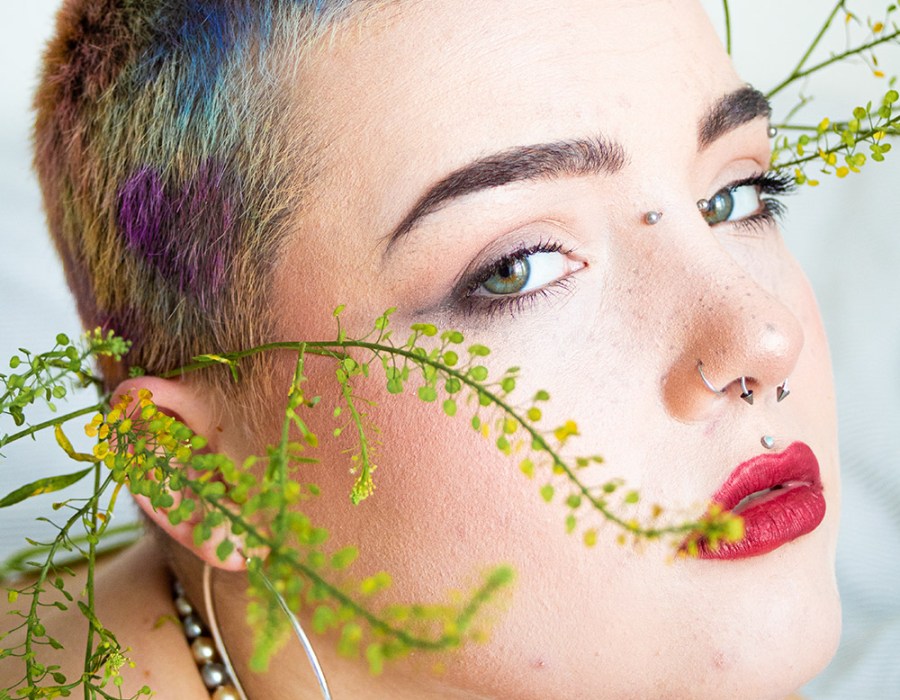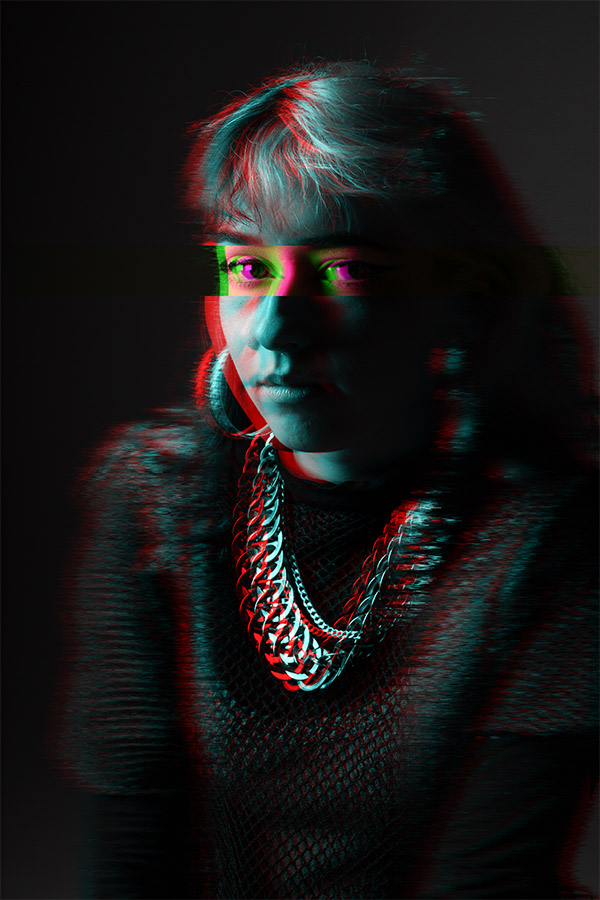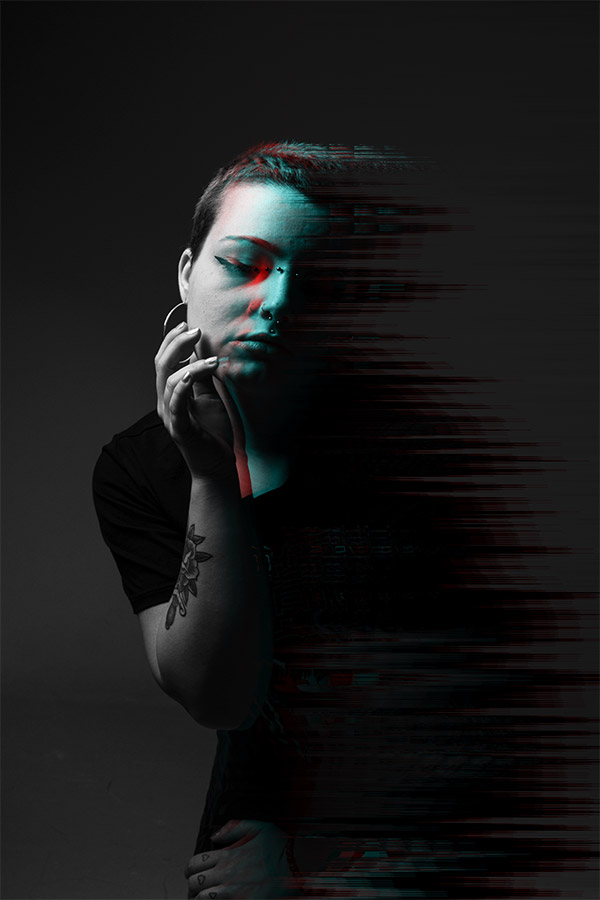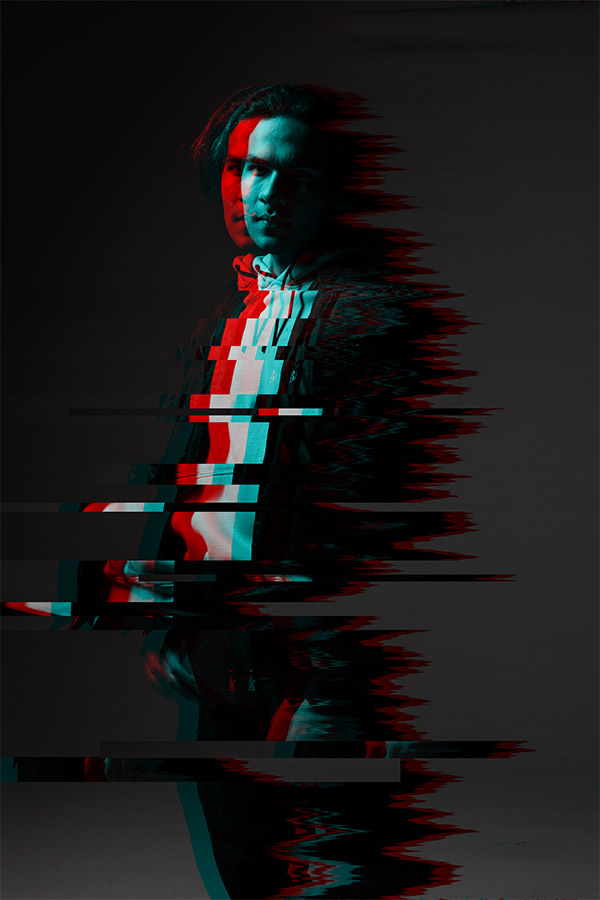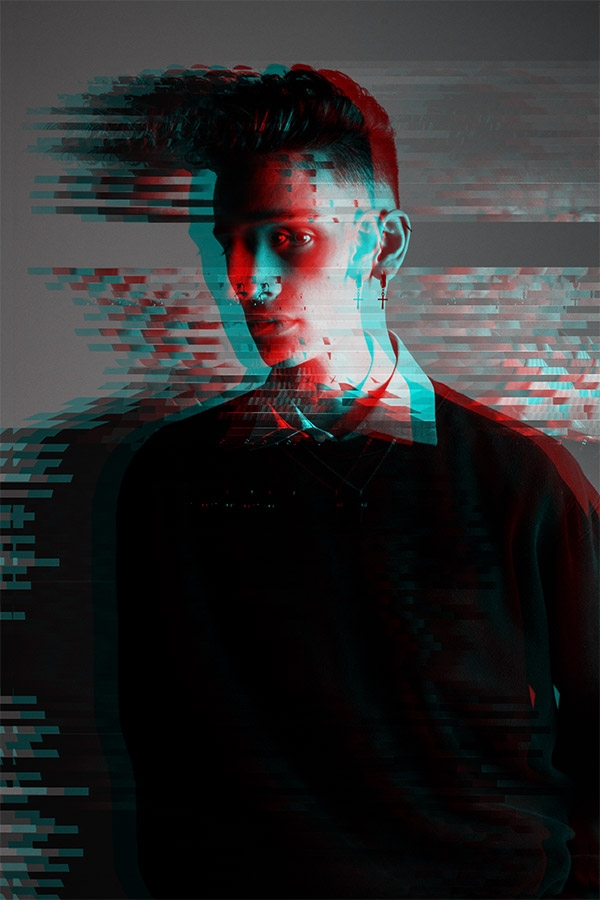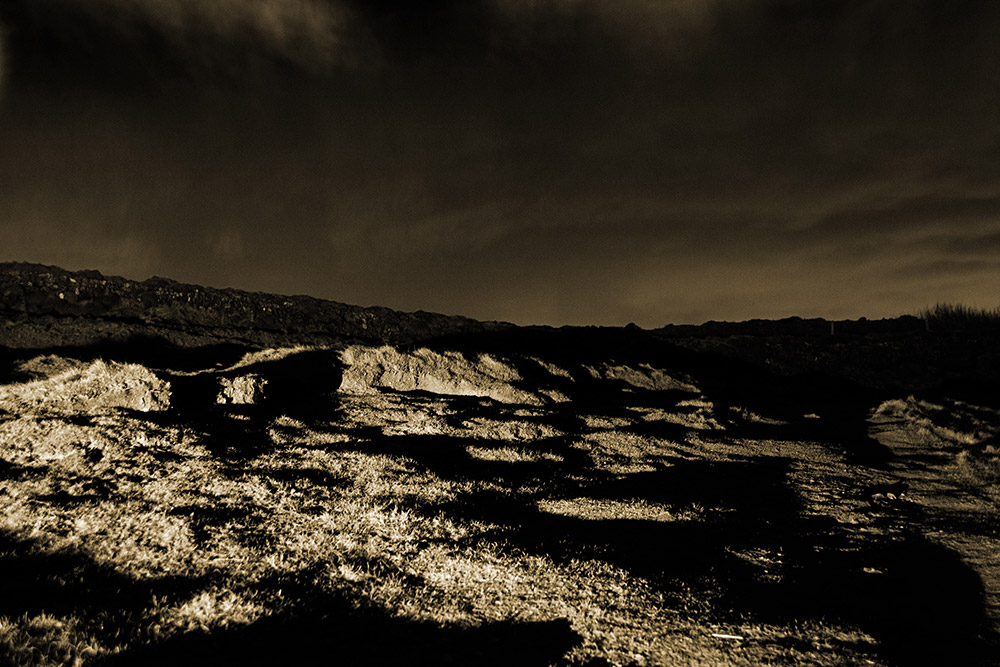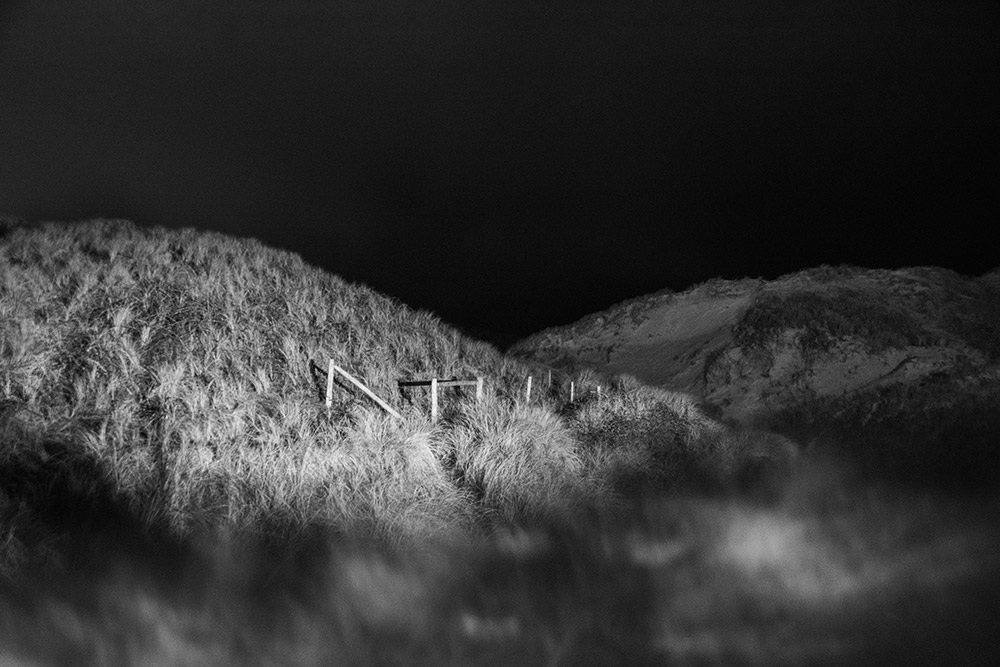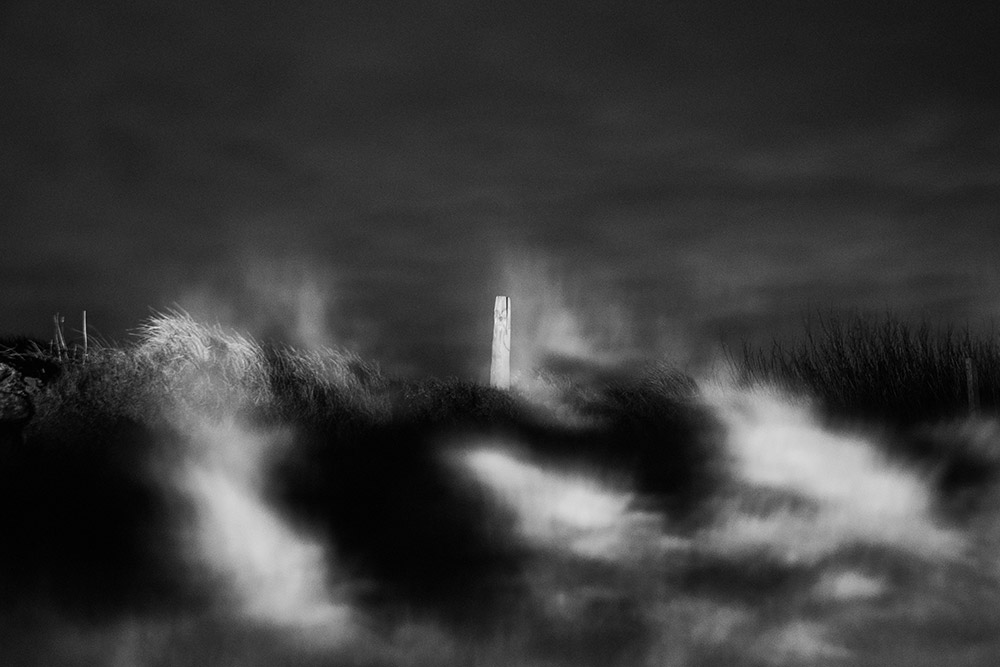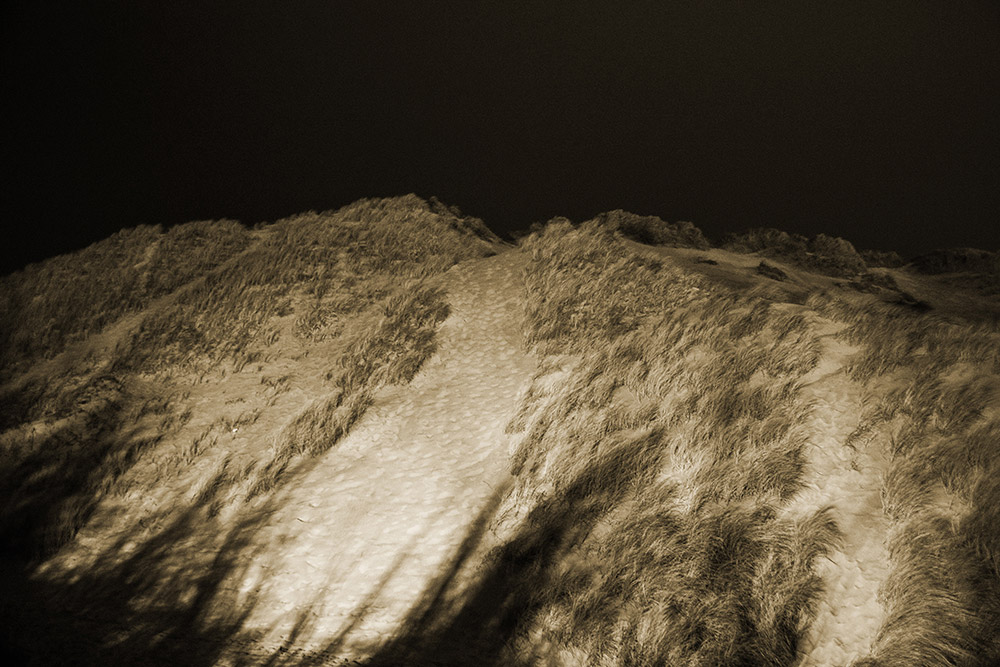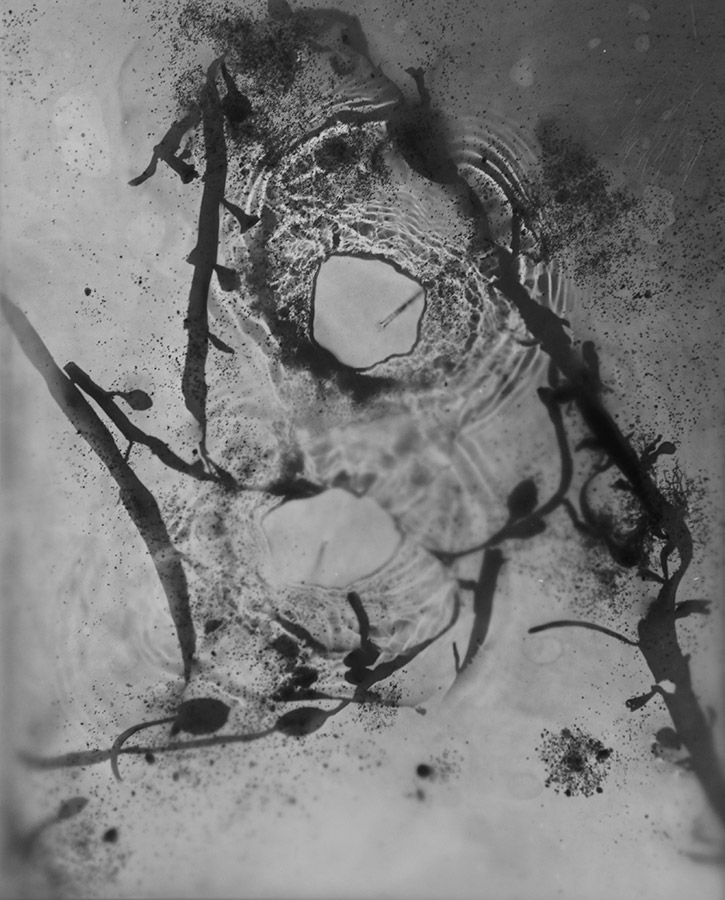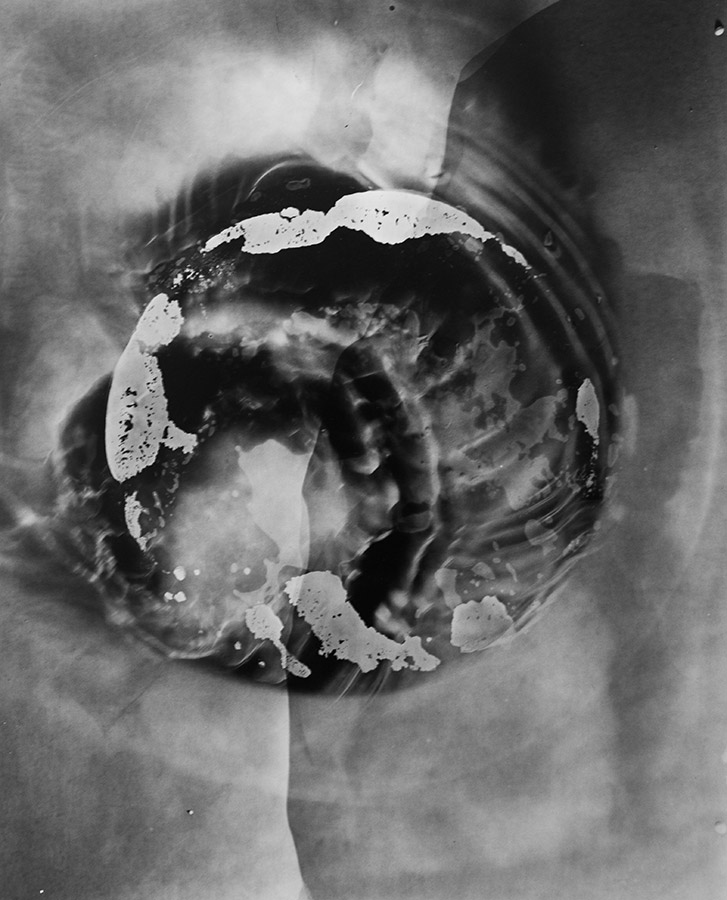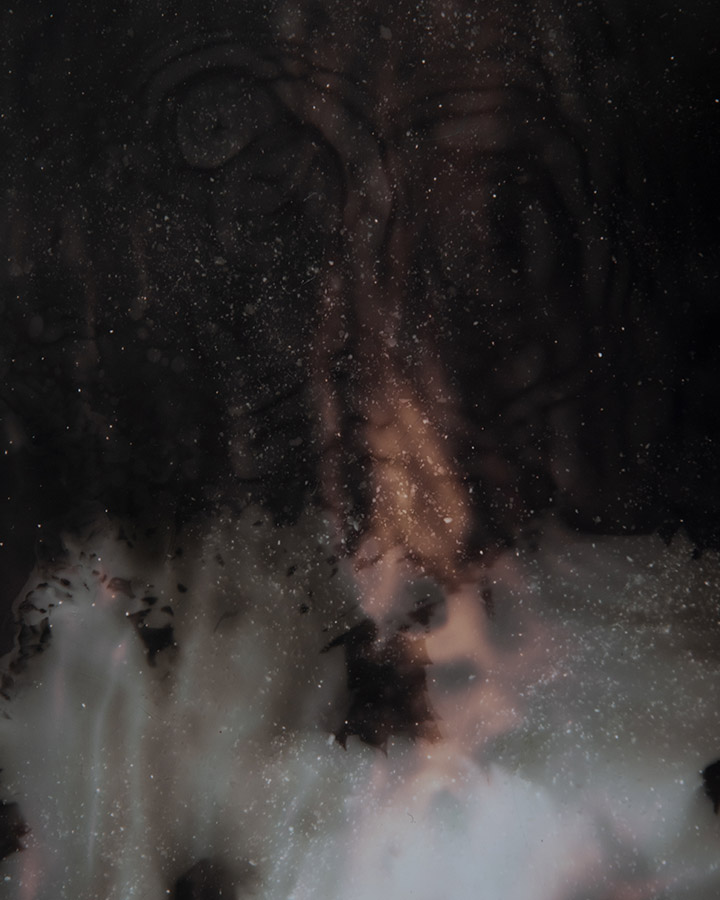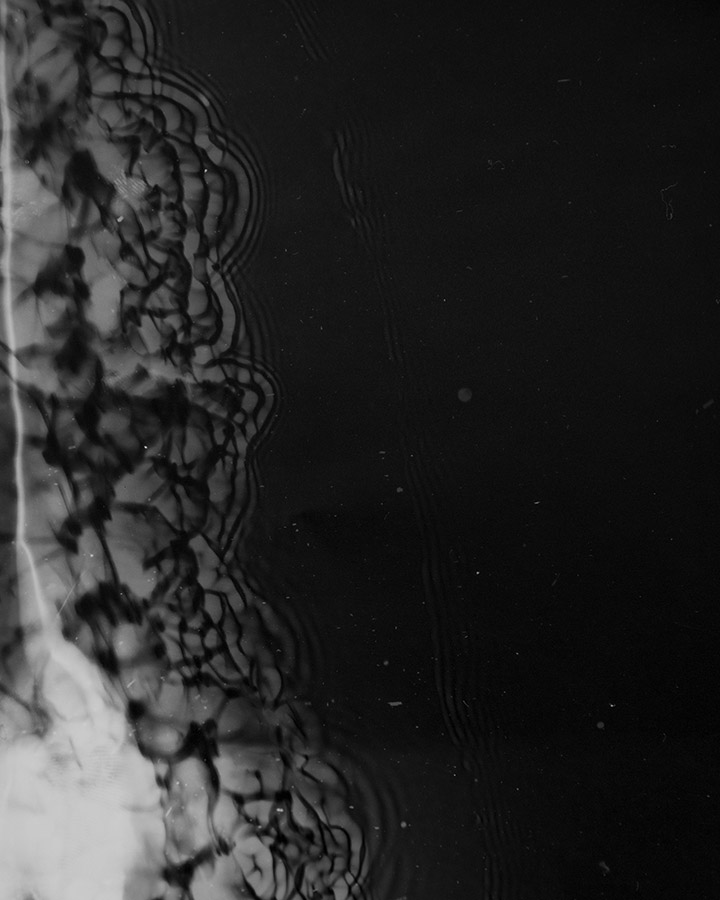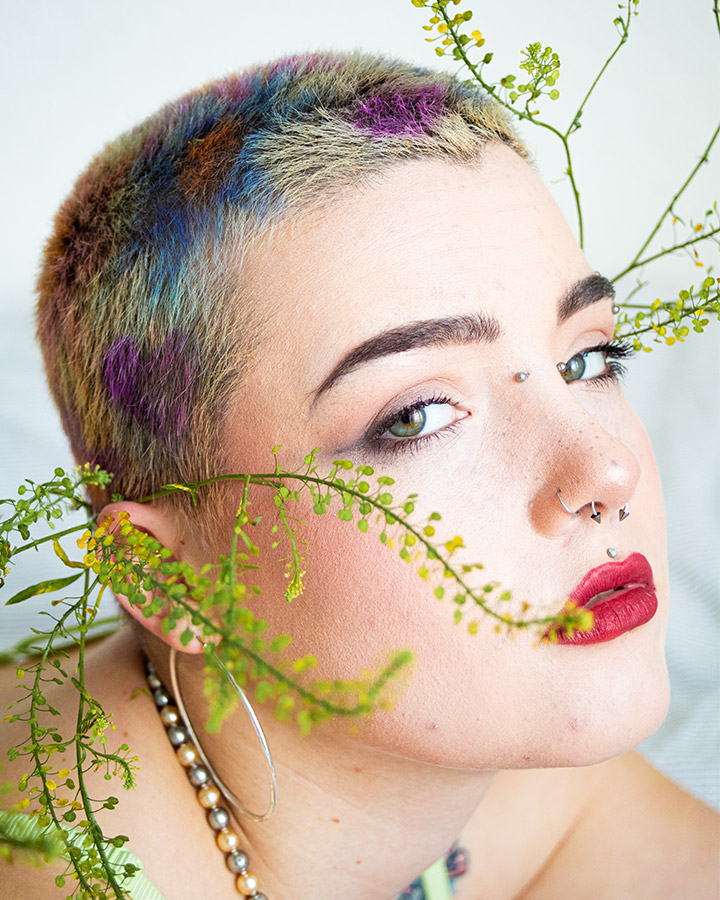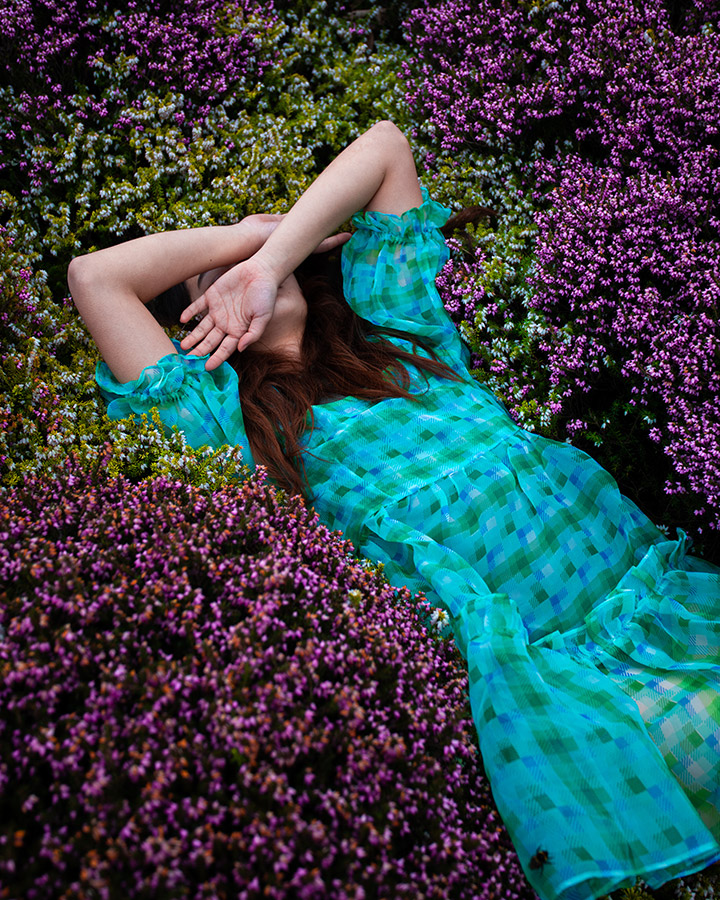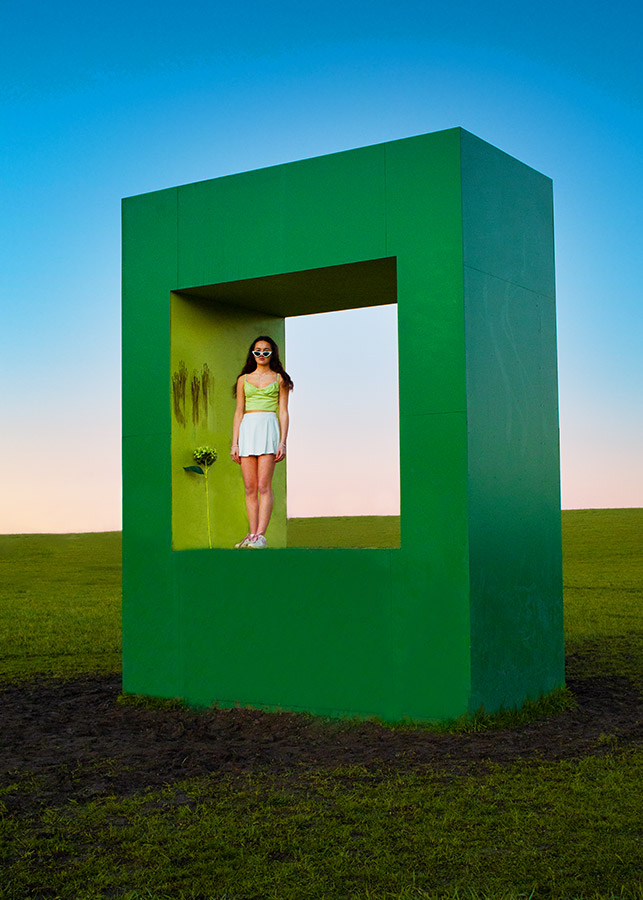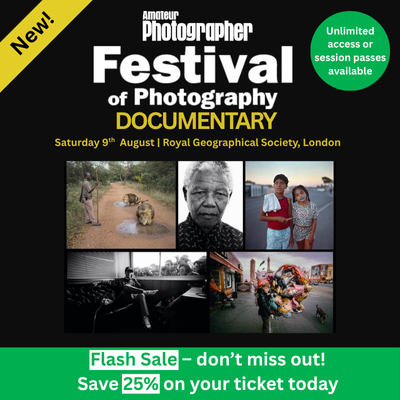Jessica Miller visits Gweles, the graduate show by Final year BA (Hons) Photography students from Falmouth University. Below, the students share more about their projects and advice for those looking to get into photography.
For two weekends in June and July Free Range student shows take over warehouse spaces in the Truman Brewery on Brick Lane, London – with this year being dedicated to mainly photography.
One of the shows on display within the first week of Free Range was Falmouth University’s Gweles exhibition by graduating BA (Hons) Photography students.
Through a range of processes and techniques including digital manipulation and alternative darkroom printing, students in this cohort have explored themes including mental health, coastal landscape change and femininity.
I spoke with some of the Falmouth photography students about their work, inspirations and future plans as they conclude their studies:
Jack Broad – Glitched Reality
Combination of Nikon D7500 and Sony A7R IV with with a 35mm f/1.8 lens. Onsite studio for lights and backgrounds.
Can you tell me about yourself and your project?
I originally started my path with photography when I was 16. Growing up I always loved to be creative, and photography was a form I had yet to peruse. I started off with landscape and built the confidence over the past six years to be able to express myself through portraiture after dealing with issues of social anxiety. When I started out with photography it was a quick descent into the technical knowledge allowing me to understand what the cameras functions and different ways to capture images, giving me my drive to push myself to see what I could achieve.
Throughout creating Glitched Reality I have been focusing on mental illness, viewing the chemical imbalances within our brains that causes mental health issues and illnesses like a glitch within the brain. A glitch is an error to a system that occurs due to unknown causes whilst potentially causing harm to the system.
In a similar way that our brains can under and over produce neurotransmitters and chemicals can cause that when balanced can help maintain a healthier impact on our mental health. The project started with inspiration from the mental health issues of my own, members of my family and friends creating a range of images demonstrating various conditions they have encountered along the way.
How did you select the photographs for your show?
When it came to selecting my images, I wanted to select images based on what I found to be more striking with the message behind the images. The visual effects and digital manipulation were essential towards this project, once additional research had been completed looking into depression, anxiety, bipolar and other varying conditions.
What are your future plans?
For the future I am hoping to start travelling and documenting my travels with my photography, taking a break from the grittier sides of my previous projects. Starting off with trips across Europe, but until then I look to be upgrading my kit and saving up to make the most of the travels.
Do you have any advice for those looking to get into or study photography?
- Know your kit, play around with your camera, see what you get as a result and go from there.
Louis Izard – Terra Nullius: Volume 2
Nikon D810, Nikon AF-S NIKKOR 24-85 mm f/3.5-4.5G ED VR Standard Zoon Lens. Tripod, triangular prism and LED rechargeable work light.
Can you tell me about yourself and how you got into photography?
I enjoy producing abstract landscape photography. I got into photography just before my A levels after experimenting with cameras during my GCSEs. Although the fact both my Dad and my Grandpa were photographers during their careers also helped inspire me.
Can you tell me more about your project?
Terra Nullius: Volume 2 is the conceptual continuation of Terra Nullius which examines the transitional period of twilight, during which changes in light visually alter landscapes. This second chapter develops these themes, focusing on coastal locations where the natural elements of land and sea influence continuous change.
The coastline juxtaposes jagged cliffs with dunes and expansive stretches of lunar-like vistas. These settings are captured during the visual uncertainty of twilight and through the introduction of haze by utilising prismatic refraction. These beautiful coastlines are warped into otherworldly abstract scenes that challenge the observer’s perception of a traditional landscape.
I wanted to express the impressions these places had on me whilst I explored them. I did this through on location manipulation of the composition, this was done by creating stretching shadows with a portable LED light and using long exposures combined with a prism to create these mist-like formations. This reflected the discordant experience the darkness can play on your eyes after turning off all artificial light.
My idea to transform and distort landscapes was heavily influenced both visually and conceptually by Awoiska van der Molen and her body of work Sequester, where she produced void-like environments during periods of dawn and dusk. Much of the sepia imagery is inspired by Andrei Tarkovsky’s film Stalker, where there is this suffocating sepia-tone effect found during scenes within the city, a feeling I personally felt strongly in some of the locations I came across.
Nicholas Hughes is another major influence in my project, his consideration of time and our place within nature evolved my thinking about the relationship between self and landscape.
How did you select the photographs for your show?
Many of the images I included within the project focused on constructing a narrative where I would have the viewer traverse this landscape through my photographs. I wanted my portfolio, book and exhibited images at Free Range to take the viewer on a journey, reflecting my trips traversing these environments at night. The photographs start off still, with traces of human construction but then gradually transition into these images depicting movement with a sense of isolation.
What are your future plans?
My plans are to hopefully continue this project and use these skills and experience I have gained to explore and capture other coastlines at night. My next destination will most likely be Norfolk’s Coastline as it contrasts against the rough and rocky northern Cornish Coast. I want to see if it changes the way I approach or feel whilst travelling this coastline. I will also be looking for full-time work in London.
Do you have any advice for anyone looking to get into or study photography?
One of my favourite aspects of photography is how much you can experiment with the medium.
- Embrace and push ideas, be playful and try to find a area of photography that interests you.
- I also think it is very important to find images and photographers you really love as they have a bigger influence on your own practice than you would think!
Madeleine Roberts – Aqua Fortis
www.madeleinerobertsphotography.co.uk/work/aqua-fortis
Instagram: @m_t_rphotography
Facebook: Madeleine Roberts Photography
LinkedIn: Madeleine Roberts
Aqua Fortis won Gold in the Things category at The Association of Photographers Student Awards.
Can you tell me about yourself and how you got into photography?
I have just graduated from Falmouth University after studying for three years, where I was able to explore different aspects of photography and find what makes me really passionate about photography. I love experimenting with alternative processes in the darkroom and finding new ways to photograph.
I was able to explore my passion for alternative techniques and combine this with my interest in nature and photographing the natural world. I like to have a hands on haptic approach within photography and work directly with the materials, subject and processes.
I first became interested in photography when my parents gifted me a compact camera when I was younger, I would take it on holiday and spend my time photographing the sea and beaches. I then set myself the target to save up my pocket money and buy myself a ‘proper’ camera, so when I was fourteen I got myself a bridge camera.
My passion developed after this and I would enjoy going for walks photographing what I saw. As I got older and started thinking about university I also began to experiment more with my ideas and the way I photographed combining different techniques, whilst also experimenting with film and analogue photography.
Can you tell us more about your project?
Water is the core of life, and this can be embodied within alternative photography. Water represents life, living and the natural world and becomes the centre of photography within this body of work. It takes on different shapes, forms and flows to transcend into a different world. There are celestial elements to the work that represent the process of being created at night.
Through the combination of darkroom and location prints, you become immersed and enter the realm of water, away from the everyday hustle and bustle of life, where there is the opportunity to escape and connect with the natural world.
I wanted to combine my love of the sea and nature along with an experimental approach which enabled me to work directly in the landscape. I find being by the sea a form of escapism and it is somewhere I go to breathe and reset. It brings back fond childhood memories from growing up in France and I have always found myself drawn to the sea.
Therefore, I wanted to incorporate this into my work and create a form of escapism and transient feeling of another realm. I combined this with my interest in experimenting and finding new ways to photograph. Once I had found a process that worked, I wanted to translate it into the landscape and work in the environment that was the source of my inspiration. Therefore, I took the darkroom outside, photographing at night. This in itself gives a new perspective of the sea as it is a different experience to during the day.
How did you select the photographs for your show?
I chose the photographs that were the most captivating in my opinion. I didn’t want it to be obvious as to what they are, I wanted people to experience them for themselves and be temporarily transported away from the everyday and into another world even if it was just for a few seconds, becoming a break in reality.
I chose a variety of photographs that also linked together with their vortex like structures and transient feeling. The rest of my photographs are accompanied by commissioned poems in my photobook.
What are your future plans?
I would like to finish my book and hope to get it published in a limited series as well as creating a limited print series too. I would like to continue exploring different processes and ways to photograph water as well as travelling to photograph and work with different bodies of water.
I would like to carry on this project and I am excited to see where it takes me. I would also like to create more books in the future as well as working on collaborations and exhibitions.
Do you have any advice others wanting to get into or study photography?
- Don’t be afraid to experiment. Use the resources whilst you have them and explore as many different types of equipment, techniques and processes as you can.
- Have fun with it and photograph what you are passionate about.
Hannah Willing – Transcendent
www.hannahwillingphotography.com
Canon EOS 5D Mark IV. A tripod was used for the cube photo and a lot of retouching on Lightroom and Photoshop. A flashgun for the sea photograph, the portrait of the woman, and the photograph of the man.
Can you tell me about yourself and how you got into photography?
I’ve always been quite a creative individual but my passion for photography really started when I went traveling: I took a vast selection of photos in different countries more in an effort to never forget some of the experiences I had out in these places. I have just recently graduated from Falmouth University.
For the first year of starting the course I had no real interest in portraiture until I started taking more of an interest in fashion and fashion photography over the lockdown, I guess inspired by reading a lot more magazines and spending more time on social media as a distraction.
I started by taking lots of photos of my friends and realizing how I could kind of capture different narratives within the shoots about these people I knew quite well, and have been pursuing it since.
Can you tell me more about your project?
My project didn’t have a huge amount of back story when I was creating it, I just really wanted to capture some bold editorial shots that people would really notice to add to my portfolio aimed towards forging a career in fashion & editorial photography after I left uni. When it came down to it though I noticed how nature seemed to invade almost every shoot, and then how I would eventually submerge the subjects into these surroundings. After some researching on the topic I wrote the following about the project that tries to explain my intentions:
This project explores whether femininity has an affinity with nature, or perhaps if at this point in society, the feminisation of nature has become a romanticised or conditioned kinship.
I have created a body of work that explores these perceptions using different natural scenery and locations in conjunction with a diverse selection of models. My editorial-style photographs strive to subvert these notions by empowering both the presences of nature and femininity, whilst also aiming to dismantle gendered conceptions of the earth.
The title of the project Transcendent refers to the sublime associations that exist between femininity and nature which I have interlaced and considered throughout this project.
How did you select the photographs for your show?
Choosing photos for the show was quite hard as I had to cut other images I was fond of from the collection. I printed them small and cheaply to lay out in front of me and moved them around until I found a layout where the photos complimented each other in terms of visual styling, colour and quality. Having it physically in front of me instead of on a screen was really useful and predominantly how I reached a decision.
What are your future plans?
I really want to make a career out of photography. I have such a passion for it, and I genuinely get so excited when I find a photograph I really appreciate in terms of beauty or creativity or impact. I’d love for my work to be featured in a high-end magazine or to be part of the advertising for a respectable company! I am also particularly motivated by traveling and I’m definitely aiming to go again as soon as I can.
Do you have any advice others wanting to get into or study photography?
- My advice to anyone wanting to to get into photography is genuinely just to pick up a camera and start shooting. This is when I’m at my most creative because you have to consider things differently, from a more interesting or aesthetic perspective to warrant taking the actual photograph. I think that’s when the ideas start flowing and from there you start becoming more aware of your surroundings, what does or doesn’t make a good photography.
- Practice and messing around with the camera, models, subject etc… also makes you feel a lot more comfortable in a relatively technological practice.
I’m really interested in collaborating photographically, please don’t hesitate to contact me if you might be interested, be it modeling, shooting or concepts!
BA (Hons) Photography at Falmouth University
Find out more about studying the BA (Hons) Photography course at Falmouth University here.
See more examples of the student’s work in this video here: Gweles – Falmouth University BA Photography Exhibition
Free Range shows
Free Range is a special project that started by the Truman Brewery in 2000, alongside Fashion East, the talent incubator for emerging designers. The project was started initially to give students from outside London, in areas where the creative community may not have been as strong, the opportunity for their work to be seen by the creative industry that was building in Shoreditch and to meet peers from across the UK.
See more student work here:
University of Gloucestershire students share new perspectives at photojournalism show
Birmingham City students: elevating into the photographic industry
Middleman: the degree show by University of Portsmouth

